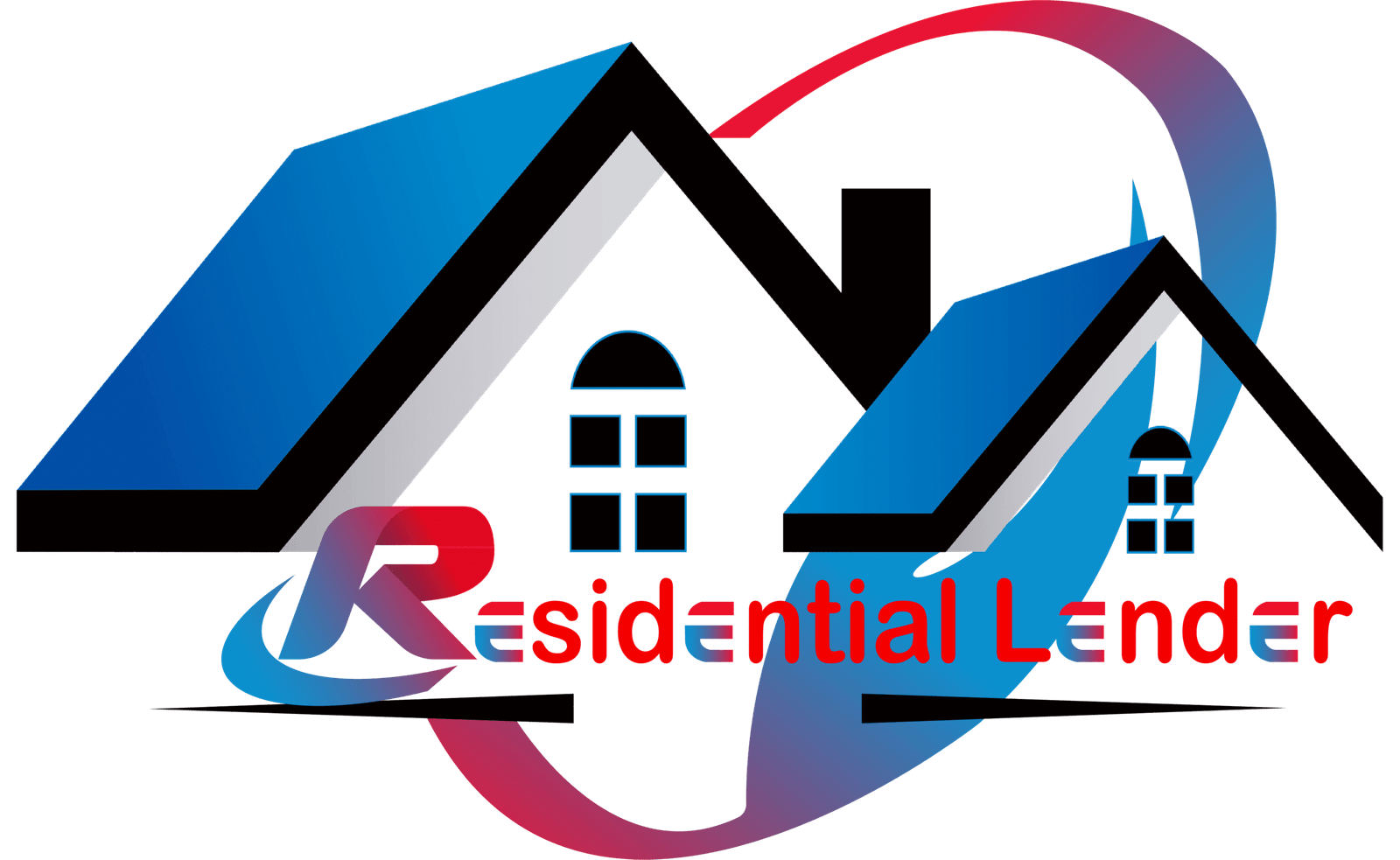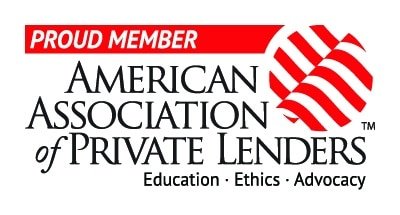Being financially free means you don’t need a regular paycheck to live a good life. You can choose how to spend your time, what you want to do, and how to reach your long-term goals. Buying a house can help you achieve your goal in several ways, such as:
- Passive Income: Rent payments can be a steady source of income for rental homes, giving them a constant cash flow. (Investopedia)
- Appreciation: A home’s worth usually increases over time, meaning the owner may get more money when they sell it. (The Balance)
- Tax Advantages: Real estate owners benefit from tax breaks for mortgage interest, property taxes, and other costs related to buying and selling homes. (IRS (.gov))
What are Residential Investment Loans?

Residential investment loans are a type of lending that can help you buy properties that you plan to rent out or hold on to for capital gains instead of living in yourself. Unlike primary residence mortgages, which usually require smaller down payments (3–20%) and are meant for people who live in the home themselves, residential investment loans usually have
- Higher Down Payments: This can vary from lender to lender and loan program to loan program. Investors may need a down payment of 15% to 25% or more. (LendingTree)
- Stricter Qualification Requirements: Lenders may be more stringent about credit scores and proof of income for investment property loans than mortgages on a primary home. (Forbes)
- Different Loan Options: You can get a standard loan for investment properties. There are also government-backed programs like FHA loans (with a limited number of units) and portfolio loans for investors with a lot of experience. (Investopedia)
If you know these fundamental differences, you can choose if a home investment loan is the right way to get the money you need to reach your real estate investment goals.
Exploring Potential Real Estate Investments

Commercial Multi-Family Properties
Investors who use home investment loans can get a lot out of multi-family properties like apartments, duplexes, triplexes, and more significant buildings.
- Economies of Scale: Caring for one big house may be easier than caring for several single-family homes. Repairs and maintenance can be done on more than one machine at the same time.
- Diversification of Income: If one unit is empty, rental income from other units can cover it, making the cash flow more stable.
- Potential for Higher Rents: In the same area, rents for multi-family units are often higher per square foot than for single-family houses.
Considerations
- Higher Investment: Most of the time, multi-family houses need a more significant down payment than single-family homes.
- More Complex Management: Managing more than one tenant at once takes more time and skill than managing just one renter.
- Financing Options: For multi-family properties, financing may have stricter standards for who can get the loan, and interest rates may be higher than for single-family investment loans.
Single-Family Homes as Rentals
Through residential property loans, single-family homes can also be an excellent way to make money:
- Potentially Lower Barrier to Entry: Investing in single-family homes can be a cheaper way to get started in real estate than investing in multi-family houses.
- Simpler Management: Dealing with one tenant at a time may take less time than managing several flats in a multi-family building.
- Familiar Market: Investors may know more about the rental market for single-family homes in their area.
Considerations
- Vacancy Risk: A single-family home vacancy can have a much smaller effect on your cash flow than a multi-family house with multiple income streams.
- Maintenance Responsibilities: You might be responsible for all repairs and upkeep for the whole property.
- Lower Potential Rents: Single-family houses can have lower rents per square foot than multi-family units in the same area.
Townhouses as Investment Opportunities
There is a middle ground between single-family homes and multi-family homes, and that is townhouses:
- Potentially Lower Investment: Because townhouses can be cheaper than separate single-family homes, they can be a good investment because they can be used as rental homes and bring in money.
- Lower Maintenance Burden: Townhouses often share walls with units next to them, which could mean the owner can do less work on the outside.
- Similar Management to Single-Family Homes: Keeping one rental townhouse can be like holding a single-family home.
Considerations
- Limited Control: Homeowner association (HOA) fees and rules may make it harder for you to change or improve your townhouse.
- Shared Amenities: Townhouses may share amenities like pools or shared areas, which could make upkeep more expensive or cause problems with other people who live there.
- Lower Rents: In the same place, townhouses may have lower rents than detached single-family homes.
Your financial goals, risk tolerance, and management skills will determine the best investment property. Before choosing the right residential investment loan for your multi-family, single-family, or townhouse property, consider your budget, the time you want to spend, and how involved you want to be.
Residential Investment Loan Options

Conventional Investment Loans
These are the most common loans for buying investment properties. Here’s what you’ll typically need:
- Strong Credit Score: Aim for a 680 Credit Score or higher for the best rates.
- Lower Debt-to-Income Ratio (DTI): Lenders prefer a DTI below 36%.
- Higher Down Payment: Expect a minimum down payment of 20% (compared to 3-5% for a primary residence).
- Documentation: Proof of income, tax returns, and asset verification.
Government-Backed Loans
Most of the time, FHA loans are only used for primary residences rather than for investment properties. However, there are options for multi-unit residential buildings (4+ units), and we are qualified. Talk to our experts to determine if these programs fit how you want to spend your money.
Hard Money Loans: Fast Financing, Higher Costs
Hard money loans are a quick way to get money for rental properties, but the terms are shorter, and the interest rates are higher. They are great for jobs that quickly need cash, like fixing an old house. These are some words you may come across:
- Bridge Loan: Short-term loans to “bridge” the time between buying and selling a house.
- Business Statement of Credit: A financial account shows how much money the property makes and how much it costs to run.
- Term Loan: A loan with a set interest rate and repayment time.
- DSCR (Debt Service Coverage Ratio): Find out if a borrower can repay a loan with the property’s cash.
The Power of Correspondent Lenders
Faster Loan Processing with Correspondent Lenders
There are a few ways that correspondent lenders like ResidentialLoan.net might be able to speed up the loan acceptance process for residential investment properties:
- Simplified Workflow: They check out potential clients and take care of the loan paperwork upfront. This cuts down on the amount of back and forth with one loan.
- Multiple Funding Sources: They have built contacts with many investors, which lets them quickly match your loan profile with the best fit. You don’t have to do any shopping around.
- Dedicated Processing Teams: Faster turnaround times are possible because correspondent lenders often have teams whose only job is handling investment property loans.
Access to Diverse Loan Programs
When it comes to residential investment properties, correspondent lenders offer a more comprehensive range of programs than standard lenders, who only provide a few loan options:
- Non-Conforming Loans: These loans are for people who might not be able to get a regular loan because they need better credit or down payment standards.
- Portfolio Loans: Correspondent lenders may keep these loans in their portfolios, which gives them more options for terms and requirements.
- Specialized Investment Programs: They might have plans for certain types of investments, like fix-and-flips or rental homes.
Correspondent lenders can help you find the best way to get the money you need for your investment by using their network of buyers and loan programs.
In-House Underwriting Expertise: A Streamlined Process

Benefits of In-House Underwriting Teams
For home investment properties, in-house underwriting teams make the loan application process more accessible and could even go faster:
- Faster Communication: The fact that underwriters and loan officers work in the same building speeds up the process by making it easier for them to share information and answer any questions. This eliminates the wait time that comes from waiting for feedback from outside insurers.
- Streamlined Decision Making: In-house teams can review your application and decide whether to approve it more quickly when working together. With this, there must be more communication between the different underwriting organizations.
- Greater Flexibility: In-house underwriters know the lender’s rules better and may be more willing to work with you to find solutions for unique cases. This could increase your chances of being approved.
Getting to Know Your Needs: Personalized Loan Evaluation
In-house underwriters can talk to loan officers directly, and the loan officers will know exactly what your business goals are. This lets you:
- Customized Review: They can look at more than just your credit score and financial papers when they review your long-term investment plan. This can be very important for homes that need repairs or have unusual ways of making money.
- Proactive Communication: They can let you know about any possible problems early on so you can fix them before they slow down the process. They also advise you on other loan choices that might be better for your investment plan.
- Streamlined Documentation: Because they know your case well, they can help you determine which documents are most important and how to submit them, saving you time and effort.
When you use in-house underwriting knowledge, the loan application process goes more smoothly, and you have a better chance of getting financing that fits your investment goals.
Beyond Traditional Loans: The Superbroker Advantage

Finding the Perfect Fit: ResidentialLoan.net as Your Superbroker
As a “superbroker,” ResidentialLoan.net does more than what standard lenders can do. We’re here to help you and have access to a vast network of lenders specializing in home investment loans. This has several benefits:
- Wider Lender Pool: We connected you with many different lenders, such as banks, credit unions, private lenders, and government-backed programs. This makes it much more likely that you’ll find the best loan for your investing goals.
- Specialized Loan Options: A lot of the time, super brokers can get loans from niche lenders that offer special loan programs. These could be hard money loans for fixer-uppers, portfolio loans with open terms, or non-conforming loans for people with bad credit.
- Streamlined Matching Process: We look at your business goals and financial situation to find lenders most likely to give you a loan with good terms. You won’t have to call several companies separately, saving you time and trouble.
Negotiating Power for Competitive Rates and Terms
Superbrokers like ResidentialLoan.net can negotiate on your behalf because they have good ties with many lenders. In the worst case, this could lead to:
- Lower Interest Rates: Super brokers can get you the best interest rates because they can talk to lenders fighting for your business.
- Favorable Loan Terms: We can talk about loan terms like the amount of the down payment, the closing costs, and the fines for paying off the loan early. This could save you thousands of dollars over the life of the loan.
- Simplified Approval Process: Thanks to our knowledge and good relationships with lenders, we can speed up the loan approval process. This means you can quickly get the money you need and move forward with your investment plans.
Using ResidentialLoan.net as your super broker, you can access more loan choices, better rates, and the knowledge to negotiate with lenders to get the best financing for your home investment goals.
Qualifying for a Residential Investment Loan

Financial Requirements
Lenders look at how stable your finances are to decide if you can get a loan for a home investment property and what terms you can agree to. These are some essential things:
- Credit Score: A good credit score (usually above 680.0) shows you can handle your debts well.
- Debt-to-Income Ratio (DTI): This number looks at the monthly debt payments compared to the total income. A smaller DTI (usually less than 36%) means that you can handle making extra loan payments.
- Down Payment: Investment loans usually need a more significant down payment than central residence loans, often 20% or more. Lenders are less likely to lose money on a loan if you make a more substantial down payment.
- Cash Reserves: With enough cash, you can handle unexpected costs and keep the home in good shape. Lenders may want savings equal to three to six months of mortgage payments.
- Investment Experience: Depending on the type of loan, having experience handling rental properties or flipping houses can be helpful.
Building a Strong Application with ResidentialLender.net
Here’s how ResidentialLoan.net can help you strengthen your application for a residential investment loan:
- Free Pre-qualification: Get a preliminary loan eligibility assessment without impacting your credit score.
- Expert Guidance: Our loan officers will analyze your financial situation and investment goals to recommend the most suitable loan options.
- Documentation Assistance: We’ll guide you through the required documents and help ensure everything is complete and organized for a smooth application process.
- Credit Optimization Strategies: We can offer tips to improve your credit score before applying for a loan.
- Negotiation Expertise: We leverage our lender relationships to negotiate for the most competitive rates and terms on your behalf.
By partnering with ResidentialLoan.net, you gain valuable guidance and support throughout the application process, increasing your chances of securing the best financing for your residential investment property.
Take Control of Your Financial Future
Building Wealth Through Residential Investment Loans
Residential investment loans can be a powerful tool for building long-term wealth. Here’s a quick recap of the advantages:
- Generate Passive Income: Rental properties provide a steady stream of income that can contribute to your financial goals.
- Potential for Appreciation: Over time, the value of your investment property may increase, offering additional wealth-building opportunities.
- Tax Advantages: You may qualify for tax deductions on mortgage interest, property taxes, and depreciation, reducing your tax burden.
- Diversification: Investing in real estate diversifies your portfolio, potentially mitigating risk and improving overall returns.
Get Started with ResidentialLender.net
Ready to unlock the potential of residential investment properties? Let ResidentialLoan.net be your guide:
- Visit our website, ResidentialLoan.net, to explore our loan options and resources.
- Call us today at (844) 690-6000: Speak directly with a qualified loan officer to discuss your investment goals and financing needs.
- Get a Free Pre-Qualification: Start your journey with a no-obligation pre-qualification to see if you qualify for a residential investment loan.
Don’t wait any longer! Take control of your financial future with ResidentialLoan.net. Let us help you find the perfect financing solution to bring your real estate investment dreams to life.
FAQs
What are the different types of residential investment loans?
Several options include conventional loans, government-backed loans (limited applicability), and hard money loans. We recommend speaking with a lender to determine the best fit for your situation.
What are the typical requirements to qualify for a residential investment loan?
Lenders consider factors like credit score, debt-to-income ratio, down payment, cash reserves, and experience (depending on the loan type). ResidentialLoan.net offers a free pre-qualification to assess your eligibility.
How can I strengthen my application for a residential investment loan?
Here are some tips:
- Maintain a strong credit score.
- Reduce your debt-to-income ratio.
- Save for a larger down payment.
- Build cash reserves.
- Partner with ResidentialLoan.net for expert guidance and application assistance.
What are the benefits of using residential investment loans?
These loans can help you:
- Generate passive income through rental properties.
- See potential appreciation in property value over time.
- Gain tax advantages through deductions on mortgage interest, property taxes, and depreciation.
- Diversify your portfolio and improve overall returns.
How can I get started with ResidentialLoan.net?
We offer several options:
- Visit our website: Residential Lender
- Call us at (844) 690-6000 to speak with a loan officer.
- Get a free pre-qualification online to see if you qualify for a loan.








